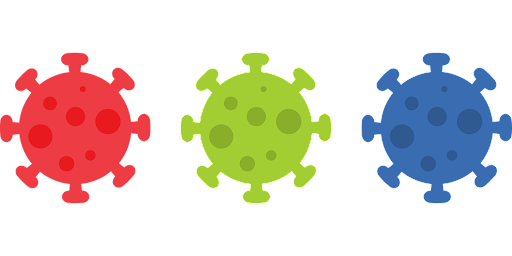
We’ve all turned on the news lately and heard about variants of the coronavirus that are starting to concern doctors. As a retired medical professional, Marla Ahlgrimm is often asked by friends and family what it all means. Keep reading for a quick Q&A with the women’s health expert.
Q: What is a variant?
Marla Ahlgrimm: A variant is essentially a mutated virus. Mutations happen naturally as any living organism replicates. Humans, for example, mutated over millions of years, and we are no longer genetically the same as our Neanderthal ancestors. The same is true of viruses. The flu, for example, mutates year-to-year, and it is almost impossible to predict exactly how these mutations will affect the virus.
Q: Is it more dangerous to contract a variant of a virus or the original?
Marla Ahlgrimm: Not necessarily. The vast majority of mutations that result in variances don’t change the virus enough to have a profound effect on humans. But, sometimes, a variation may be more transmittable or have the ability to sidestep vaccination or natural immunity.
Q: Do viral variations change how doctors treat a disease?
 Marla Ahlgrimm: Absolutely. As I mentioned a moment ago, doctors can’t predict how mutations will affect the virus. But, when they do, they can tailor a vaccine to target specific properties.
Marla Ahlgrimm: Absolutely. As I mentioned a moment ago, doctors can’t predict how mutations will affect the virus. But, when they do, they can tailor a vaccine to target specific properties.

Q: How concerned should we as a nation be about variants of the COVID-19 virus?
Marla Ahlgrimm: It’s prudent to pay attention to the types of viruses that are floating around year-to-year, whether we are in the middle of a pandemic or not. Specific to the coronavirus, there are five known variants. The most prevalent strain at the moment, Delta, doesn’t necessarily produce worse symptoms than the original, or Alpha, virus. But, Delta may spread more easily. The newest iteration of COVID-19, omicron, will likely produce a similar level of illness as Alpha but early studies suggest that it increases the risk of reinfection in already vaccinated or immune individuals
